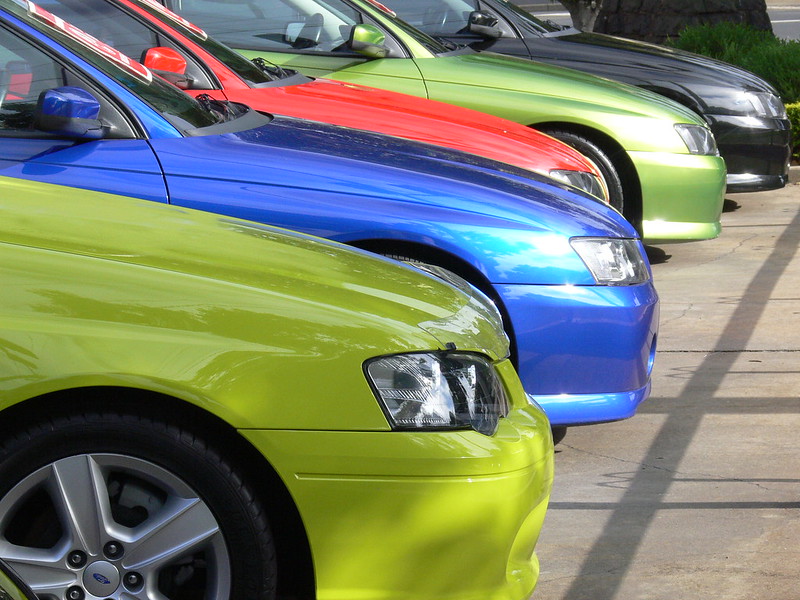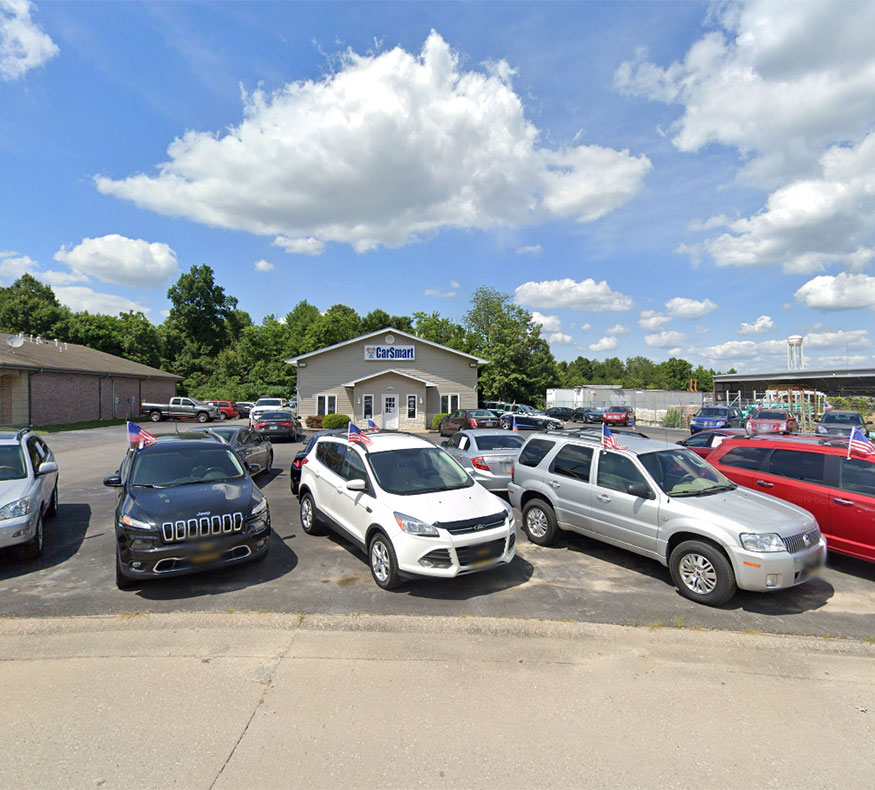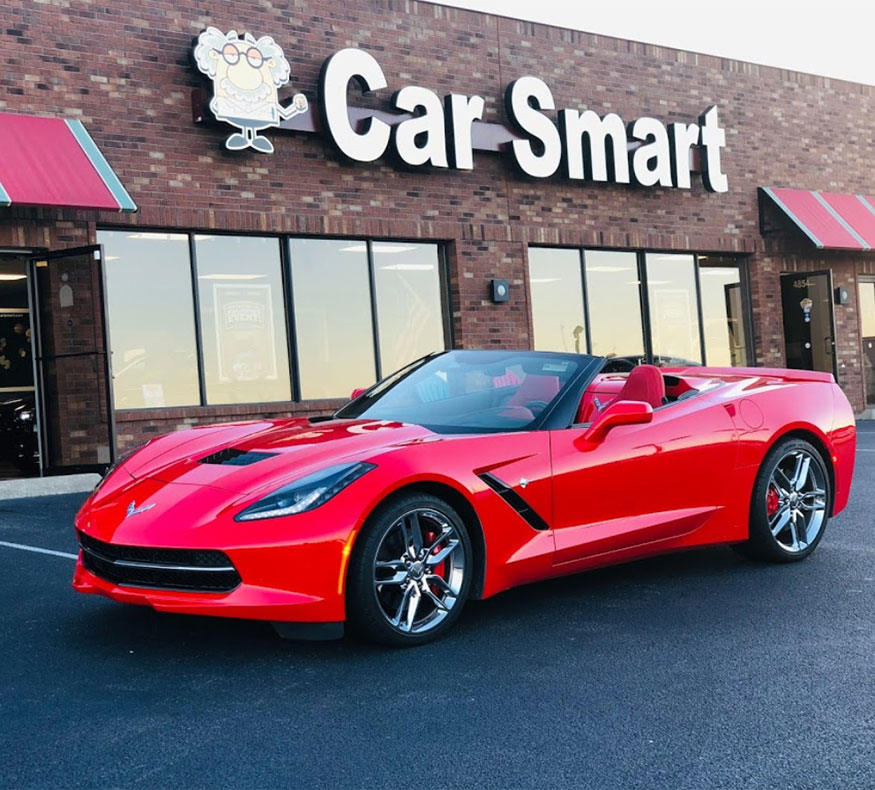Everyone loves the idea of a new car: shiny, just off the factory line, complete with the ever-present new car smell. But not everyone can afford or even wants a new car. According to researchers at McKinsey & Co., about 40 million used cars are sold in the United States each year. That's a lot of transactions.
Given the size of the market, you might rightfully ask: How are used cars priced? It's more than just an academic exercise. Understanding the factors that go into the pricing of used cars will make you a smarter shopper, giving you insights into the best times to buy, how much you can expect to spend, how to value your current used car, and more.
How are Used Car Prices Determined?

Image via Flickr under CC BY 2.0 by Foot Slogger
A basic principle of markets says that a product is worth whatever someone is willing to pay for it. This holds true for used cars. But sellers need to have a grasp of the variables to decide whether to take out the checkbook. Here are some factors that determine the market price of used cars, according to Investopedia:
- Drive time. As a general matter, the more miles you put on a car, the lower its resale value is going to be. It means that the car has had more time to be exposed to environments and conditions that can take a toll on its useful life, such as driving through inclement weather, over dirt roads and potholes, on highways and city streets, up steep hills, and around hairpin curves. It stands to reason that a car with 35,000 miles is going to command a higher price than one with over 100,000 miles.
- Condition. Don't immediately judge a car by its speedometer only. Low-mileage cars can have problems such as worn seats, scratches, dents, rust, and other issues that will push down the car's price tag. Conversely, high-mileage cars that have avoided accidents and been exceptionally well taken care of over the years, might be priced higher than you expect.
- Location, location, location. The U.S. economy comprises smaller regional economies with different factors that impact supply and demand. Four-wheel-drive SUVs will be more in demand in snowy, hilly areas in the northeast, for instance. But convertibles or sports cars will get more interest, and thus a higher price, in warmer parts of the country.
- Options and configurations. Cars that lack convenience items such as air-conditioning or power windows will be less in demand and therefore have a lower price. In contrast, cars with extra items such as a moon roof, a high-quality sound system, or extra safety features may get more interest from the market and command a higher price.
What's the Best Time to Buy a Used Car?
The calendar also plays a role in determining the prices of used cars. Certain times of year are potentially better than others to get a good deal. For instance, the transition from one model year into the next typically draws many new car buyers into the market. That may result in a flood of trade-ins becoming available at one time. A sudden influx of used cars will translate into lower prices as dealers seek to draw more buyers.
Holidays are another time of year to be on the lookout for lower used car prices. President's Day in February, for instance, is often associated with big sales at car dealerships. But other holidays, such as July Fourth and Labor Day, also can trigger specials on used cars.
Used car prices may also be sensitive to the financial calendar of the dealer. Approaching the end of a fiscal year, a dealer may be looking to meet financial targets and adjust prices accordingly. The same could happen at the end of a quarter, which is when dealers look to tally their results from the prior three months.
How to Do Your Research
The factors that influence the prices of used cars do not operate in isolation. Markets are dynamic; prices change regularly as supply and demand fluctuate. In the connected age, buyers and sellers have more information than ever before about the nature of the used car market.
So it's wise to do your research whenever you are considering buying a used car. The information can help give you the confidence that you're getting a fair price. But it can also help when it comes time to negotiate a value for your trade-in.
One of the best sources of information on used car values is the Kelley Blue Book. This publication contains information based on data from thousands of new and used car purchases a week. The data comes from a range of sources, such as party-to-party sales, auctions, dealer sales, and more.
Edmunds is another popular source of data and information about used cars, providing reviews as well as data on sales and other market forces shaping prices. Also consider consulting the National Automotive Dealers Association, Consumer Reports, and VMR Auto Guides. Sometimes consulting more than one source is valuable to account for differences in data collection.
Shop for Your Next Used Car at CarSmart of Farmington
At CarSmart of Farmington, Missouri, you can count an outstanding selection of cars with fair and consistent pricing. We offer models from all the major manufacturers, including Acura, Audi, Cadillac, Chevrolet, Chrysler, Kia, Nissan, Porsche, Toyota, Volkswagen, and more. Search our site by make, model, mileage, or other variables to find the car that fits your needs.
Our focus at CarSmart is on redefining the car-buying experience. We know our customers have choices, and they also have more information available to them than ever before, so we strive to be open, honest, fair, and fun. You can expect to receive customized sales promos that apply to the exact vehicle that interests you and access online tools that calculate trade-in appraisals and give Kelley Blue Book values.
Our motto makes it clear: CarSmart. It's not rocket science! Call us or contact us online to make an appointment for a test drive. We'd love to see you!.




